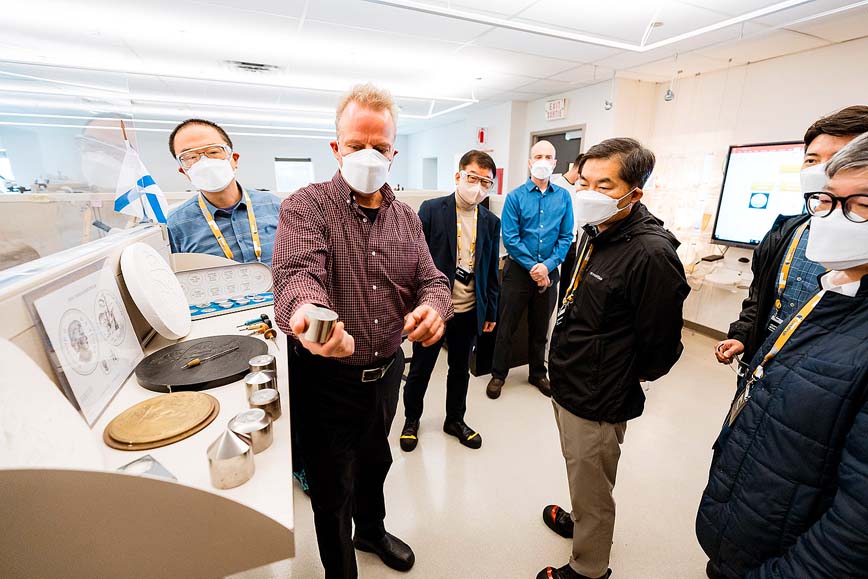



MDC Gala Dinner at the Canadian Museum of History.
The 2023 Mint Directors Conference took place in Ottawa, Canada, earlier this month. Hosted by the Royal Canadian Mint (RCM), the event was the first MDC held in five years and welcomed over 250 delegates from mints and the wider industry across the globe.
The theme was ‘Minting for the Future’, and two of the RCM’s goals, particularly after such a long absence, were to ensure that the conference was both innovative and immersive. It certainly succeeded on both counts, with the layout (of round tables) designed to encourage participation and discussions.
The use of innovative technology (including remote presentations via hologram), the explicit inclusion of all parts of the industry, including the dealer community, the engagement of specialists in participatory experiences at live events (BePossible) to keep the dialogue and ideas coming, and the combination of interactive workshops, panel discussions and working groups all ensured something unique and very different, not just from previous MDC events, but industry events in general.
The programme focused on innovation and ESG with specific presentations on topics such as sustainability, social inclusion, marketing, circulation coinage and numismatics. Taking place over three days, MDC 2023 also played host to the MDC Awards and invited delegates to tour the RCM’s manufacturing facility in Ottawa.
The conference programme officially opened on Sunday evening with a Welcome Reception at the Westin Hotel, overlooking the capital city. The reception featured live music and the attendance of two ‘Mounties’, members of the Royal Canadian Mounted Police, in their distinctive uniform.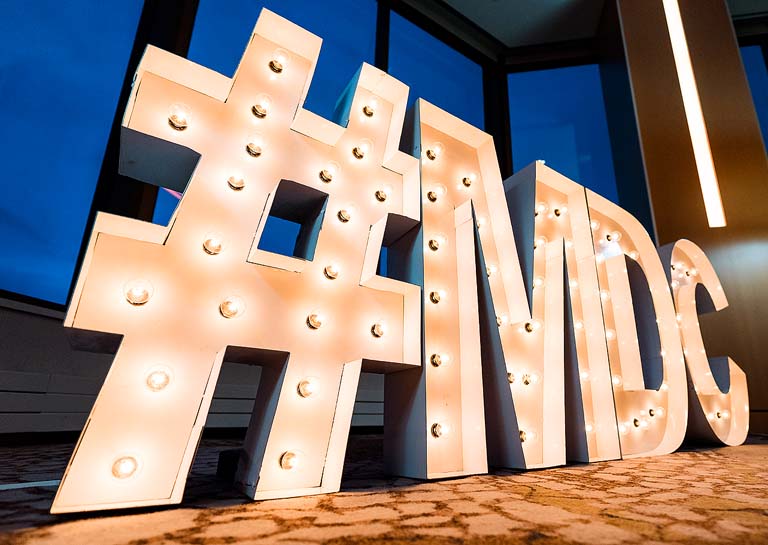
The first day of the conference opened with a welcome address from Marie Lemay, President and CEO of RCM, who invited delegates to take the opportunity to focus on the future of minting, particularly in view of increasing digitalisation, look at the challenges and opportunities of numismatics, and look at how mints can be leaders in sustainability.
Stephen Poloz, former Governor of the Bank of Canada, formerly opened the programme with his keynote address on ‘In an Ever Changing World – What is Next?’, based on his new book ‘The Next Age of Uncertainty’ (with delegates all receiving a free copy). His speech took delegates through the confluence of largely maligned socio-economic and geo-political events that are creating such uncertainty in current times, and would have been depressing had he not delivered it with such panache and humour.
The takeaway message for the coin industry was that in such uncertain times, and potentially with even greater uncertainty, consumers and retailers that have become cashless will look for mediums that provide certainty and stability.
The first plenary session opened with an introduction from Soji Skariah of Sesami, who offered a few perspectives on the future of circulation coinage in a digital world landscape. These included trends in the global landscape, the integration of cash in a digital world, and the company’s optimisation solutions.
A panel discussion on ‘the Future of the Monetary Landscape’ then took place, with panellists Guillaume Lepecq (Cash Essentials), Martina Horakova (International Mint Industry Association – IMIA), and Vass Bednar (McMaster University). The panellists discussed the rise of digital payments and the future role of cash and coins amongst this, ensuring the acceptance of cash, the impact on mints, and the role of cash during crises.
Moderator Jeffery Rogers, from BePossible, closed the session by leading an interactive Futures Mapping activity. Delegates then participated in dynamic exercise by working within their tables to create their own Future Maps, based on a number of prompts focusing on the future of circulation coinage in a digital world.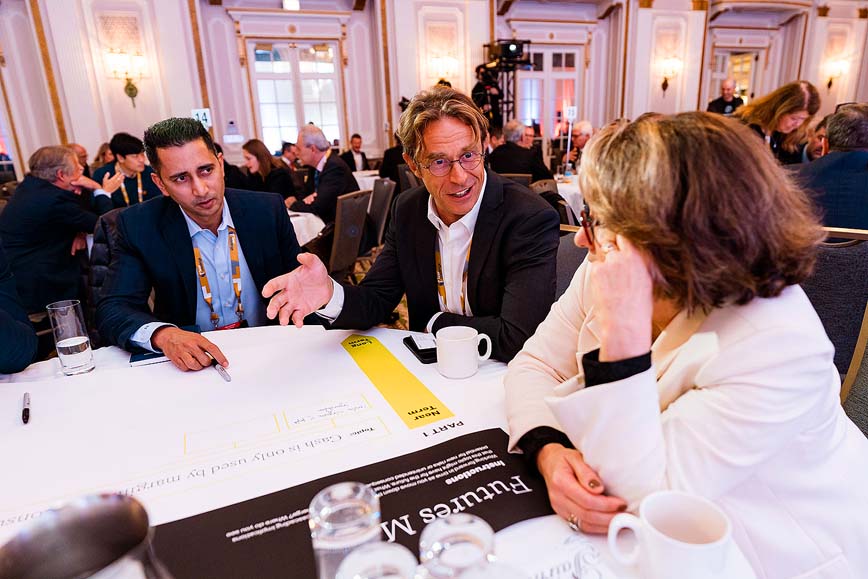
The afternoon saw the programme splitting into twin track sessions, with one session featuring presentations from members of the International Mint Directors Network (IMDN) Technical Committee and the other exploring ‘How Can Mints Build Brand Engagement Through Innovative Marketing?’.
Manfred Matzinger-Leopold from the Austrian Mint opened the technical committee session by introducing Thomas Hrach from Economa, who presented on material recovery for sustainable manufacturing . This includes elements such as measuring the exact weight of the product, precise 3D scans, blank cutting and retrieval of shavings, and handling heavy material totes using SCARA robots (which are based on EPSON robotics).
Xianyao Li, CTO at the RCM, then presented on the use of new material and technologies – including opportunities for a ‘new EMS’ – to provide greater coin security and authentication.
Next was Paulo Alexandrino of INCM (the Portuguese Mint), who discussed the work undertaken on alternative methods for producing dies, such as surveys, comparison modelling and optimisation of the methods – which include conventional hobbing, CNC machining, laser engraving, and electrochemical machining. The exploration of these methods included input from various suppliers who produce die production machines – Sack & Kiesselbach, LANG, ACSYS Lasertechnik, and PEMTec, respectively.
Paulo was followed by Pascal Rencker of the Monnaie de Paris, who spoke on the future of tri-component coins and their testing and production of tri-metallic, bi- metallic and polymer, and bi-metallic and ceramic coins for more secure, sustainable, cost efficient and durable high value coins.
Closing out the morning’s technical committee presentations was Siemovit Kalukiewicz, Mennica Polska, who updated delegates on the TC’s project on improving coin and blank inspection through automation. This included the installation of SPALECK inspection systems in Sack & Kiesselbach presses at the Polish and Bavarian mints, with the first integration taking place in Morocco at the end of last year.
Taking place at the same time as the TC presentations, Tom Froggatt from RCM introduced Josh Hansen from McCann and Joe Heath from Saatchi to speak on innovative trends in marketing. Josh spoke on the use of Artificial Intelligence for marketing, focusing on three main aspects for the technology’s use – context, adaptability, and balance. Speaking remotely from Australia, Joe provided the company’s perspective on these trends, which include collaborative marketing, gamification and the uses of apps, and purpose driven marketing.
Nicolas Dumont from Monnaie de Paris, Aziya Ibrayeva from the Kazakhstan Mint, and Mark Cartwright from the Royal Australian Mint then provided examples of successful marketing initiatives from each mint. These included the Rugby World Cup medals and French Excellence collector coins from Monnaie de Paris, sustainable development at the Kazakhstan Mint, and the Donation Dollar from the Royal Australian Mint.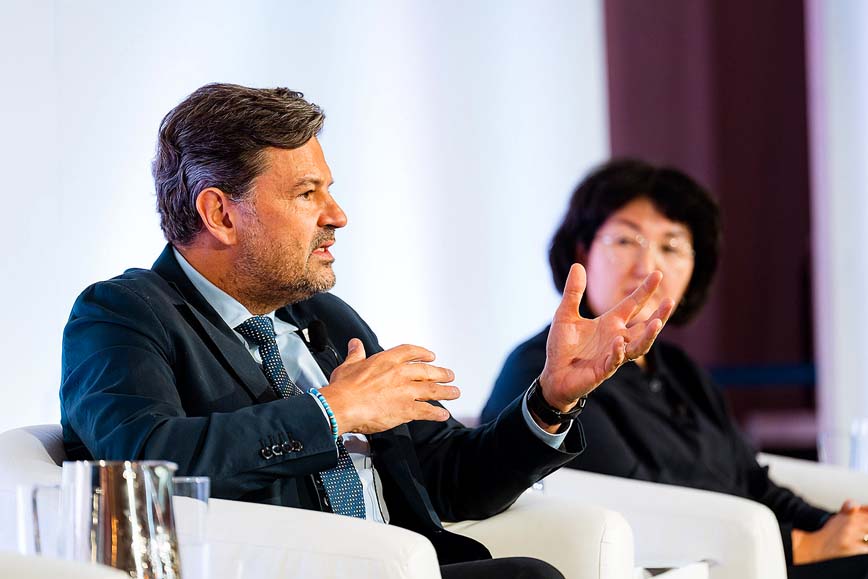
The first day of the conference closed with a Canadian Experience evening held at the Fairmont Le Château Montebello in Quebec, the world’s largest log cabin. With the sun setting over the Ottawa River as its backdrop, the evening also included audience participation in playing heritage musical spoons, a traditional percussion instrument, alongside Canadian folk music.
Day Two of the conference opened with the second keynote address from Dr Farah Alibay, an aerospace engineer currently on the M2020 Mission, working on the Mars Perseverance Rover. Speaking remotely from Los Angeles, and appearing on stage via a Proto holographic communications platform (which knocks spots off Zoom or Teams), Dr Alibay spoke about her background, sustainability, and the importance of social inclusion and environmental stewardship, from her perspective as an aerospace engineer.
Claire Bennet, from the conference’s sustainability sponsor PwC, then gave an overview of the sustainability efforts for MDC 2023 and its aim of achieving carbon neutrality. These included accounting for MDC’s greenhouse gas (GHG) emissions, a decarbonisation approach, and sustainable conference practices. Mitigation activities included the use of sustainable catering and décor, improved waste management practices and the reduction of single-use plastic and unrecyclable materials, and the incorporation of virtual elements to reduce the need for business travel. Carbon offsetting was also utilised, with the ‘Great Bear Forest Carbon Project’ selected to offset emissions from the conference.
Colin Osborne from Samuel & Son (a Canadian multinational company specialising in metal processing, distribution, and industrial products) then provided the introductory presentation on the session topic, ‘How Can Mints be Leaders in Sustainability?’.
He explained the importance of sustainability to the organisation, with investment in disruptive technology leading to over 70% reduction in energy use and GHG. As its next steps, Samuel & Son is now looking to water stewardship, commercialise additive, scope 3 optimisation, and fleet conversion, alongside continuous improvement programmes targeting annual improvement.
Presentations and a panel discussion on ‘Exploring the Concrete Actions that Mints Can Take in a World that Demands an Increased Focus on ESG’ then took place, with presentations from Toby Heaps (Corporate Knights), Andrew Mills (The Royal Mint), and Scott Ingham (Royal Canadian Mint).
Toby Heaps provided a global perspective on sustainability, based upon research conducted by the organisation, noting that the companies investing the most in sustainable products and services are doing better than those who are not, and that global spending on clean energy is estimated to reach $4.3 trillion by 2030 as decarbonisation solutions become more common and more affordable.
Andrew Mills then spoke about what mints have been doing with respect to sustainability, detailing the actions taken by the Mint Directors Association subcommittee on sustainability, including the inaugural Sustainability Charter.
The final presentation of the session, by Scott Ingham, described collaborative efforts made to reduce plastics use in the minting industry. The approach taken by the Environment Subcommittee of the IMDN Technical Committee has identified opportunities to reduce the use of plastics for investment and numismatics product packaging, as well as circulation coinage.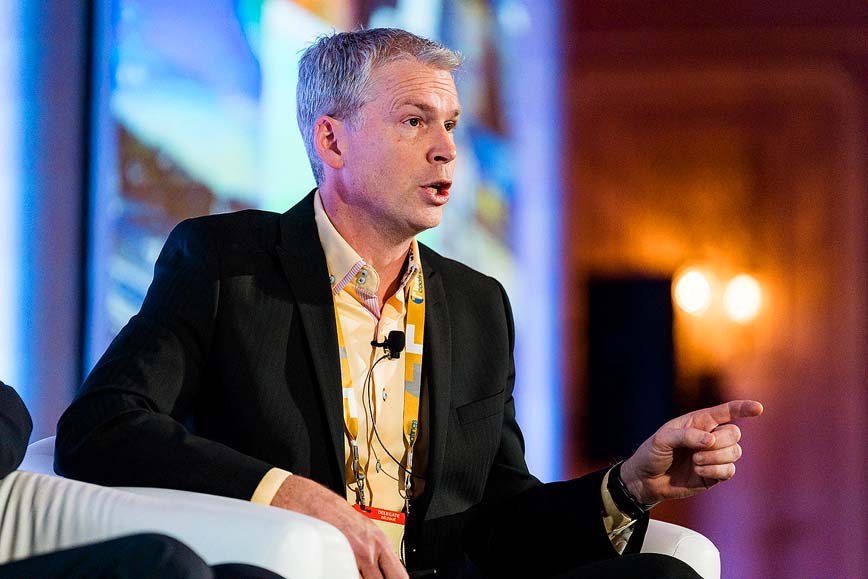
The next breakout sessions again took place as twin track sessions, with further presentations from the IMDN-TC in one session, whilst the other session focused on ‘Rethinking Numismatics – Appealing to the New Collector’.
Mike Gradwell from Asahi Refining opened the technical committee session by introducing Günther Waadt from Bayerisches Hauptmünzamt (Bavarian State Mint), who presented on benchmarking in the minting industry. Günther briefly detailed the scope and milestones of benchmarking, before introducing the benchmarking ‘toolbox’, which includes KPI (Key Performance Indicator), technical and supplier benchmarking. Fostering external benchmarking was encouraged, to learn from other industries, plus the extension to include ESG criteria – with participation underlined as the most relevant need for benchmarking.
The next presentation came from Sharon Tran of the Royal Australian Mint, who explained automation and industry 4.0 (I 4.0) in the minting industry, with the eponymous TC subcommittee aiming to improve industry understanding of both topics. Sharon detailed the impacts of the fourth industrial revolution – I 4.0 – in minting and the results of a minting survey, which found that the most utilised automation processes can be seen in circulating coining and circulating package production. She also noted that research understanding of the topic is constantly evolving and so continued exploration of the topic is recommended to ensure continued industry relevance.
Dieter Merkle of Schuler followed with a presentation on the Customer Task Force (CTF), which facilitates the exchange of relevant information between customer groups and the mint industry to understand client needs. He detailed learnings from the CTF, which covered coin attractiveness, innovation, obligation, public perception, seigniorage, trust, collectability, and longtime perceived value. Advocacy in minting was emphasised (as distinct from lobbying), with the closing statement ‘give cash your voice and tell people what coins are for!’.
Next, Mathew Phillips from EVA-Coin Group presented on the TC sub-group’s sensor sensitivity study for plated materials. The study utilised a DOF (Distribution Overlap Factor) matrix to review both a plated magnetic and plated non-magnetic substrate – steel and zinc, respectively. Controlling the precision of the plated layers and ensuring uniformed layer thickness on both sides of the coins were noted as important points for the minting industry to consider in production.
The final technical committee presentation, from Scott Ingham, detailed environmental best practices and expanded on Scott’s earlier presentation during the sustainability session. Focusing on single-use plastic, the group implemented the reduction of plastic consumption, re-use of plastic waste as feedstock, and the replacement of plastic with cardboard or paper. A longer-term project is to explore the use of alternative materials.
Taking place at the same time as the TC presentations, Jeffery Rogers introduced Steven Bromberg from Canadian Coin and Currency, who provided a Canadian dealer perspective on numismatics and appealing to new collectors. He detailed the importance of secondary markets and the opportunity for leveraging circulation coins to attract new collectors, noting that mints and dealers can work together to create a strong collector market.
Niels Hagemann from MDM then provided a European dealer perspective on the topic, highlighting three successful global collaborations between mints and dealers – the Australian Donation Dollar, the 2016 German €5 polymer coin, and the United States 50 state quarter programme. He encouraged both sets of actors to work collaboratively to coordinate on initiative and open new distribution channels.
The American dealer perspective was provided by MC Garofalo of APMEX, who laid out the current market relating to collectibles and low mintage product lines, and detailed the company’s approach to collectibles through product development, which varies based on core product assortments or the use of licensed materials.
The final presentation of the session came from Charlie Chan of LPM Group, providing a perspective on the emerging Asian coin market. LPM has found that customer demographic is dominated by a younger age group than many other markets, with a large portion in the 24-44 age group. Exclusive launches in collaboration with mints, and marketed via digital channels, have driven user engagement with an up to 8 times increase in site traffic and 4 times increase in sales.
Charlie also noted several areas of focus to consider, such as the impact of e-commerce on geographical distribution channels and the balance between wholesale distributors and direct to consumer retail.
The session invited audience participation on the topics presented, to discuss the role of mints and dealers in attracting new collectors with each other and the presenters themselves.
The penultimate session of the day saw a final twin track session taking place, with one focusing on ‘Bullion, Sustainability and Appealing to New Investors’, and the other on ‘The Business Imperative of Social Responsibility’.
The bullion session opened with Tamara Jomaa-Shakarchi from MKS PAMP on the importance of ESG for bullion. Outlining the company’s commitment to carbon neutral production, as emphasised by its carbon certified products, Tamara noted ‘MORE’ as an important acronym to consider – M(easure), O(ffset), R(educe), E(valuate).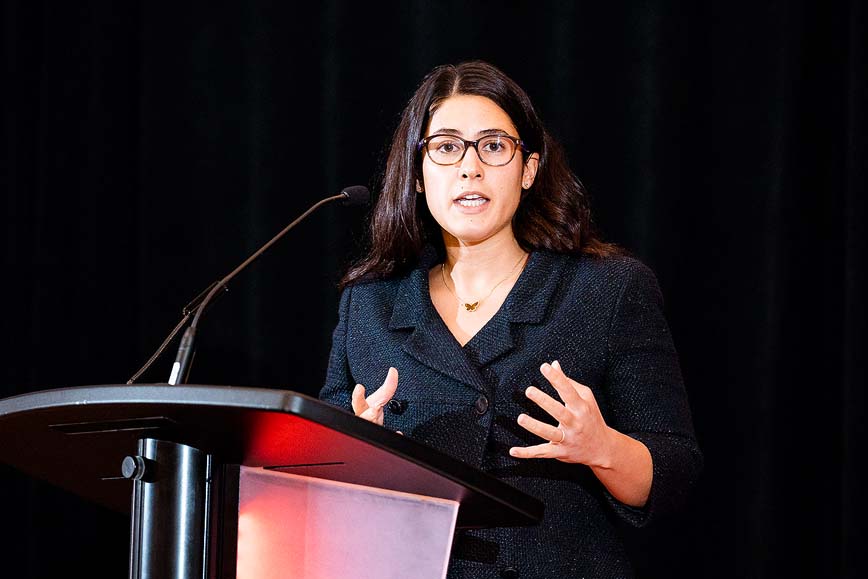
Panellists Manfred Matzinger-Leopold, Ventris Gibson (US Mint), and Tom Froggatt, then discussed the importance of sustainability for mint bullion producers. The ability to be climate resilient, to have a sustainable workforce, ethical sourcing, and create better partnerships, were mentioned as key aspects.
Tom Power from Sunshine Minting (SMI) followed the panel discussion with a presentation on the importance of ESG for bullion, noting three key aspects when considering bullion production – planet, people, and profits.
The session closed with a second panel discussion on what mints are doing to leverage sustainability and ESG to expand their bullion products and engage interest for bullion products. Actions include ensuring sustainable precious metals sourcing, investment in products to achieve net zero emissions, and digital marketing for new products.
In the social responsibility session, representatives of four mints gave case study presentations on socially responsible programmes implemented by each organisation.
Greta Luus from the South African Mint provided an overview of its partnership with a local high school, Olievenhoutbosch Secondary School. Through the partnership, the Mint offers one student a full scholarship to further their studies at a tertiary institution of their choice, with eight learners funded from 2016 to date.
Next, Leigh Gordon from the Royal Australian Mint detailed its partnership with the Children’s Book Council of Australia (CBCA). The Mint has released three coins celebrating classic Australian children’s literature to date, working with the CBCA to promote reading in schools and libraries across the country.
Anne Jessopp from The Royal Mint then covered the delivery of an authentic equality, diversity and inclusion strategy. In collaboration with external designers, the Mint has produced three gold bullion bars honouring the Hindu deities Lakshmi and Ganesh and the important symbol Om; a 50p coin celebrating the 50th anniversary of Pride UK; and a gold bullion bar depicting the Kaaba, the holiest site for millions of Muslims. Each release was commemorated with events held or attended either at the Mint or externally.
The final presentation of the social responsibility session came from Isabel Valldecabres Ortiz of the Spanish mint FNMT and detailed its partnership with the School of Engraving and Graphic Design in Madrid. Delivered as a qualification of the University of Castilla-La Mancha, the School offers a Master’s degree in Graphic Print Media, Illustration and Artistic Minting with the support of the Mint.
FNMT sees this as an opportunity to help preserve knowledge of traditional and artistic techniques and support a new generation of engraving and graphic professionals. Students access the course through scholarships, and the Mint aims to support this further with a Doctorate-level course and the inclusion of accommodation provisions, plus additional students and institutions, offered in the future.
The closing session of MDC 2023 focused on ‘Minting Our Future: Common Goals for a Resilient Industry’. The session brought together Ventris Gibson, Marc Schwartz (Monnaie de Paris), and Hideki Kato (Japan Mint) to discuss key takeaways from the conference and share ideas on the future of the minting industry from their perspective as mint directors.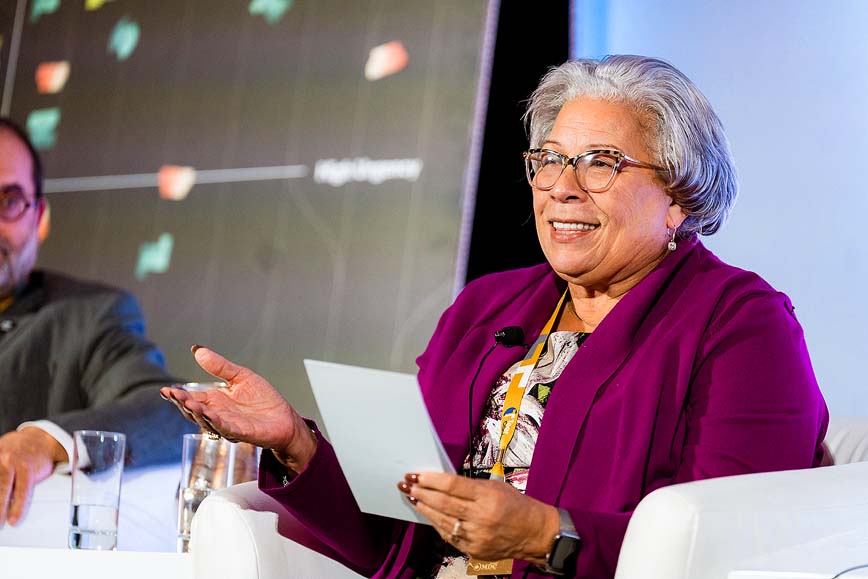
MDC 2023 closed with the Gala Dinner, held in the Grand Hall of the Canadian Museum of History.
The event paid tribute to the traditional Algonquin lands which the delegates stood upon and included traditional Indigenous drumming and dances and a Medicine Wheel experience. An emotive speech from Claudette Commanda – an Algonquin Anishinabe from Kitigan Zibi Anishinabeg First Nation and the current Chancellor of the University of Ottawa – introduced the recently-released Truth and Reconciliation Keepsakes, which were provided to all delegates to take home.
The dinner was also host to the MDC Awards, presented by Ross MacDiarmid, the outgoing Executive Director of the MDA.
Delegates were invited to tour the Royal Canadian Mint’s Ottawa manufacturing facility the following day, which provided a behind-the-scenes look at the Mint’s numismatics production facility. This spanned the full spectrum of the coin production cycle and included sights of the coin design and engraving process; die production; blanking production, the rolling room and burnishing; the numismatic and bullion press rooms; and finished coin examples and the RCM boutique.
The next MDC conference is scheduled to take place in South Africa in April 2025.